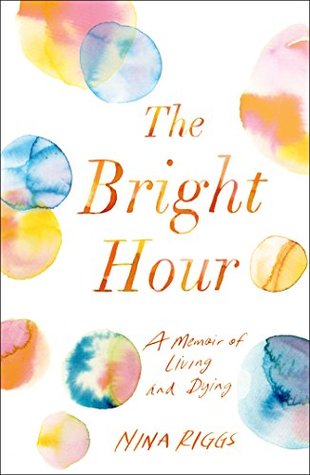More on this book
Community
Kindle Notes & Highlights
At the same time as I have watched the terror build in John’s eyes, I have felt somehow relieved. It has happened, I keep thinking. The terrible thing. This is what the terrible thing feels like. Somehow, a lovely space has opened up inside my chest, a little, deep pool in the thickest woods.
Montaigne summons Plato’s belief that doctors should ideally experience all the illnesses they seek to cure: “It is right for them to catch the pox if they want to know how to treat it.” He sounds a little cranky here, but he suffered through a number of kidney stones and I can imagine that might predispose you to crankiness.
She is asked to speak at a pre-triathlon dinner in Washington, DC, for the Leukemia & Lymphoma Society and tells a ballroom of stricken-looking athletes: Sometimes the most important thing is knowing when to quit. Sometimes being heroic is knowing when to say enough is enough. They don’t ask her to come back next year. Maybe they know she won’t be here anymore.
But really, I think it’s only serious despots that have food tasters. The Emperor Claudius, Hitler, Vladimir Putin. Probably Donald Trump. The guilty ones.
I’m rethinking my image of serene, smooth-sailing Dr. Cavanaugh. It is 7 p.m. on a Monday night. She is headed home after a long day discussing tumors and telling patients who wouldn’t just let their phones go to voicemail that they need more chemo. Maybe worse. At home: her kids—two, not much older than mine, hastily crafted dinner, a mountain of email, a bag unpacked from the conference she returned from late last night. She probably used the only quiet moments of her whole day to call me from the highway.
My mom stays curled up on the couch, her tiny body somehow seeming to have become a little smaller over the course of the evening. “You all be good,” she is saying, starting to doze. “I love you.” These are the things we all say at the end of book club now: I love you. Of course we do. Why haven’t we been saying that all along?
She embodies some of that stoicism that Montaigne admired so much—a kind of fearless acceptance. Well, not fearlessness exactly—but a fearlessness of being afraid.
“Did you think you would never reach the point toward which you were constantly heading?”


